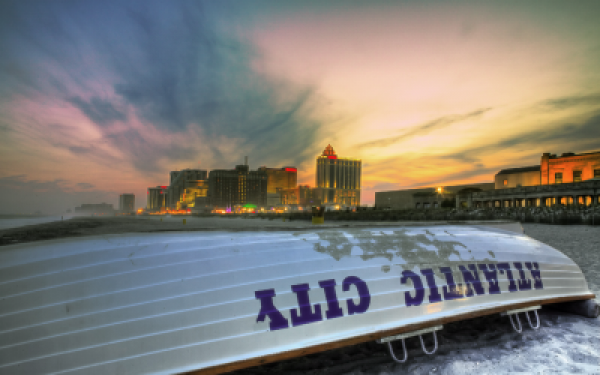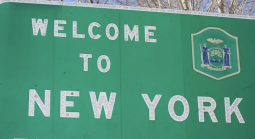Big Changes In Store For Atlantic City in 2011

ATLANTIC CITY, N.J. - Atlantic City could see major changes in 2011 that could help the nation's second-largest gambling market come back to life after stalling and struggling for four years.
By the end of the year, construction could be under way on two new casinos, gamblers could be allowed to place bets online and voters will have weighed in on whether they want New Jersey to offer legalized sports betting.
A new state-run tourism district is expected to be up and running, taking responsibility for making the area around the casinos and boardwalk safer, cleaner and better-run. The 11 casinos themselves could be subject to much less regulation and oversight by the state.
One or more of the casinos could be in new hands — at a much cheaper price — before the ball drops in Times Square again.
"2011 is going to be a very important year in advancing the solutions we need to keep Atlantic City competitive in the future," said Mark Giannantonio, president of the Tropicana Casino and Resort. "It is certainly a foundation year."
Bob Griffin, CEO of Trump Entertainment Resorts, which owns three casinos here, foresees 2011 as "a transitional year for Atlantic City."
"I'm not kidding myself about 2011; there's a lot of heavy lifting to do," he said. "But I'm very positive about the future three to five years after that because of the work we're doing now."
The most visible sign of progress in Atlantic City would be the resumption of work on the half-finished Revel casino at the northern end of the boardwalk.
Begun in 2007 before the national recession hit and credit markets dried up, Revel has been beset by problems, including the deaths of three key executives in a plane crash, a lack of funding to finish and a public backlash against a state tax break it once sought worth as much as $350 million over 20 years.
Revel ran out of money in January 2009, laid off 400 workers and stopped work on all but the exterior of the project until it could find money to do the inside. In April, Morgan Stanley pulled out of the project, already having spent $1.2 billion on it, deciding it was better to take "a substantial loss" than continue.
That set Revel chairman and CEO Kevin DeSanctis scouring the globe for the remaining $1.2 billion or so needed to finish the project, soliciting everyone from Wall Street financiers to the Chinese government.
DeSanctis said through a spokeswoman that he continues to seek financing, that work on the casino's interior will start immediately after a funding commitment and that Revel will open 18 months after that.
Lawmakers in Trenton will have a huge impact on Atlantic City's future. On Jan. 6, the New Jersey Legislature is scheduled for final votes on measures that would create a state-run tourism district encompassing the casinos and the boardwalk and would entrust the casinos with more responsibility to govern themselves by cutting back on some state regulation.
The tourism district would have power over public safety, cleanliness, planning and zoning. It would be administered by the Casino Reinvestment Development Authority, which has the power of eminent domain to condemn and raze vacant or blighted buildings.
That's precisely what state Senate President Stephen Sweeney envisions, particularly along Pacific Avenue, the seedy backdoor entrance to eight of the 11 casinos.
"We're talking about knocking down buildings and cleaning up the place so that people feel safe and comfortable walking there," he said.
A measure that already has passed the Legislature and is awaiting the signature of Gov. Chris Christie would authorize two new casinos with as few as 200 hotel rooms. Current law requires casinos to have at least 500 hotel rooms, and the most successful ones have 2,000 or more.
But the going price for building that kind of resort has topped $2 billion. The smaller casinos could be done for several hundred million dollars. In return for not having to make as great an investment as their predecessors, the two new casinos would be taxed at a higher rate.
Hard Rock International has said it wants to build one of the smaller casinos on the southern end of the boardwalk and is prepared to draw up blueprints soon after Christie signs the law.
The new year also could vastly expand how people gamble in New Jersey. A bill to authorize Internet gambling in the Garden State needs a final vote in the Assembly in January, and the November general election ballot will ask voters whether they want sports betting to be legal, assuming a federal ban on the activity is overturned.
Five casinos changed ownership this year (The Tropicana, Resorts Atlantic City and the three Trump casinos) and two more could be in the hands of new owners in 2011. The Atlantic City Hilton Casino Resort is due in court on Jan. 19 to fight a foreclosure motion by its bank, which hasn't been paid for a year and a half. And Trump Marina Hotel Casino has been for sale for most of the past three years.













